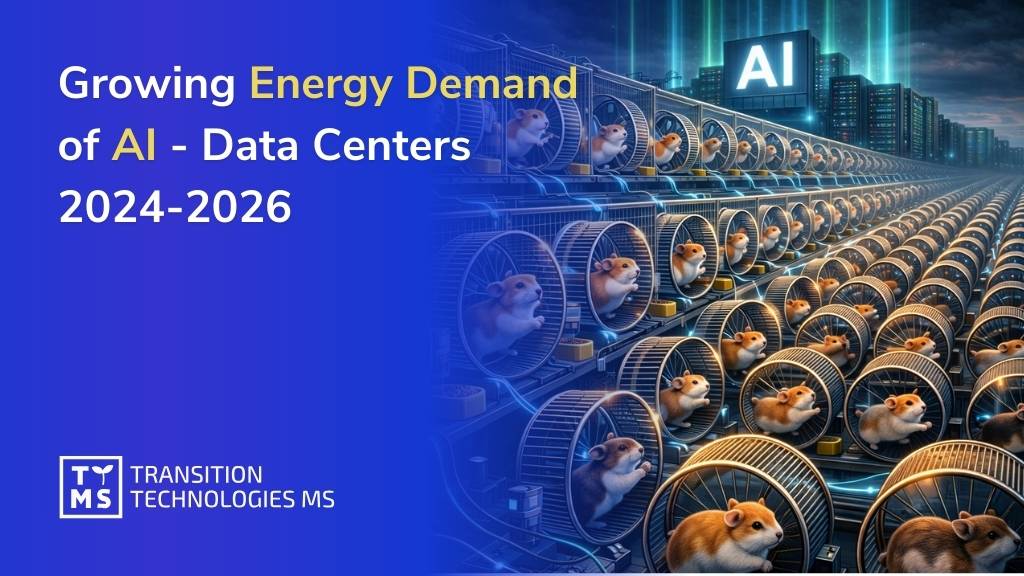
In today’s fast-paced business environment, knowledge is power. But what happens when that knowledge becomes overwhelming, scattered, or difficult to access? Enter artificial intelligence (AI) in knowledge management – a game-changing solution that’s revolutionizing how organizations handle, distribute, and leverage their collective wisdom. As we dive into the world of AI-powered knowledge management, we’ll explore how this cutting-edge technology is transforming the way businesses operate, innovate, and make decisions. From streamlining information retrieval to personalizing user experiences, AI is not just a buzzword; it’s a powerful tool that’s reshaping the landscape of organizational knowledge. So, buckle up as we embark on a journey to uncover how AI can supercharge your organization’s knowledge management system and propel you ahead of the competition.
1. Core Features of AI-Powered Knowledge Management Solutions
AI is revolutionizing knowledge management by introducing a suite of powerful features that enhance the way organizations handle, process, and utilize information. Let’s explore the core features that make AI-powered knowledge management solutions stand out.
1.1 Advanced Search and Retrieval Mechanisms Powered by AI
Gone are the days of sifting through endless documents to find that one crucial piece of information. AI-powered search and retrieval mechanisms are changing the game in knowledge management. These systems use natural language processing (NLP) and machine learning algorithms to understand the context and intent behind user queries, delivering more accurate and relevant results.
AI processes and analyzes large data volumes much faster than humans, enabling quick retrieval of information and insights. This speed and efficiency mean that employees can access the information they need in seconds, rather than hours or days. The AI algorithms can also learn from user behavior, continuously improving search results over time.
Moreover, these advanced search mechanisms can understand synonyms, acronyms, and even industry-specific jargon, ensuring that users can find what they’re looking for regardless of how they phrase their query. This level of sophistication in search capabilities significantly reduces the time spent on information retrieval, boosting productivity across the organization.
1.2 Personalization and User Experience Enhancement
AI in knowledge management isn’t just about finding information; it’s about delivering the right information to the right person at the right time. Personalization is a key feature of AI-powered systems, tailoring the user experience to individual needs and preferences.
AI-powered knowledge management systems can provide personalized content recommendations and more relevant search results by learning user behavior and preferences. This means that as an employee interacts with the system, it learns their role, interests, and frequently accessed information, creating a more intuitive and efficient experience over time.
For instance, a marketing professional might see content related to recent campaign performance and industry trends, while a software developer might be presented with the latest coding best practices and technical documentation. This personalization extends to the user interface as well, with AI adapting the layout and features based on how each individual interacts with the system.
1.3 Automated Content Generation and Curation
One of the most exciting features of AI in knowledge management is its ability to generate and curate content automatically. This capability addresses one of the biggest challenges in knowledge management: keeping information up-to-date and relevant.
AI can analyze existing content, identify gaps in knowledge, and even generate new content to fill those gaps. For example, it can create summaries of lengthy reports, draft initial versions of documentation, or compile best practices from various sources into a cohesive guide. This not only saves time but also ensures that the knowledge base remains comprehensive and current.
Furthermore, AI excels at content curation. It can sift through vast amounts of internal and external data, identifying the most relevant and valuable information for the organization. This curation process helps prevent information overload and ensures that employees have access to high-quality, pertinent knowledge.
1.4 Innovative Applications: Chatbots, Virtual Assistants, and Predictive Analytics
AI-powered knowledge management solutions are not limited to traditional interfaces. They’re bringing knowledge to life through innovative applications like chatbots and virtual assistants. These AI-driven tools can understand natural language queries and provide instant answers, making knowledge accessible 24/7.
Imagine an employee asking a chatbot, “What’s our policy on remote work?” and receiving an accurate, up-to-date response in seconds. Or a virtual assistant that can guide new hires through onboarding processes, answering questions and providing relevant information at each step. These applications make knowledge more interactive and accessible, improving employee engagement and reducing the load on human resources.
Predictive analytics is another powerful application of AI in knowledge management. By analyzing patterns in data usage and content creation, AI can predict future knowledge needs. This foresight allows organizations to proactively develop content, allocate resources, and prepare for upcoming challenges or opportunities.
1.5 Knowledge Discovery, Tagging, and Classification Techniques
Organizing and categorizing vast amounts of information is a daunting task for humans, but it’s where AI truly shines. AI can automate the process of tagging and classification, ensuring content is organized efficiently without human intervention. This automated organization makes it easier for users to navigate the knowledge base and find related information.
AI-powered knowledge discovery goes beyond simple categorization. It can identify hidden patterns and connections within the data, surfacing insights that might have otherwise gone unnoticed. For example, it might discover a correlation between customer feedback and product development timelines, providing valuable insights for both the customer service and product teams.
Moreover, AI can continuously refine and update these classifications based on new information and user interactions. This dynamic approach ensures that the knowledge structure remains relevant and useful over time, adapting to the evolving needs of the organization.
By leveraging these core features, AI-powered knowledge management solutions are transforming how organizations handle information. They’re not just storing data; they’re making it more accessible, actionable, and valuable. As we continue to explore the impact of AI in knowledge management, we’ll see how these features translate into tangible benefits for organizations of all sizes.
2. Benefits and Impact of Integrating AI into Knowledge Management
The role of AI in knowledge management is transforming how organizations handle information, leading to numerous benefits that can significantly impact business operations. By using AI in knowledge management, companies can unlock new levels of efficiency, innovation, and decision-making capabilities. Let’s explore the key advantages of integrating AI into your knowledge management systems.
2.1 Streamlining Operations and Improving Efficiency
One of the primary benefits of AI in knowledge management is its ability to streamline operations and boost overall efficiency. AI-powered systems can process and analyze vast amounts of data at speeds unattainable by human workers, leading to significant time savings and increased productivity.
AI-powered knowledge bases can handle data scaling without compromising performance, efficiently scaling up to accommodate organizational growth. This scalability ensures that as your organization expands, your knowledge management system can keep pace, maintaining efficiency even as the volume of information grows exponentially.
Moreover, by automating routine tasks such as data entry, categorization, and basic query responses, AI frees up human resources to focus on more complex, value-added activities. This shift not only improves operational efficiency but also enhances employee satisfaction by reducing mundane tasks and allowing for more engaging work.
The impact of using AI in knowledge management extends to cost savings as well. By reducing the time and manpower required for information retrieval and management, organizations can allocate resources more effectively, potentially leading to significant reductions in operational costs.
2.2 Driving Innovation through Insights and Data Analysis
AI’s role in knowledge management goes beyond mere efficiency gains; it’s a powerful driver of innovation. By analyzing vast amounts of data from various sources, AI can uncover patterns, trends, and insights that might be invisible to human analysts.
AI algorithms can analyze data to identify trends and patterns, helping organizations make informed decisions and predict future trends based on historical data. This predictive capability allows companies to stay ahead of market trends, anticipate customer needs, and develop innovative products or services before their competitors.
Furthermore, AI can cross-reference information from different departments or even external sources, leading to unexpected connections and novel ideas. This cross-pollination of knowledge can spark innovation in ways that human teams might miss.
2.3 Enhancing Decision-Making Processes with Real-Time Data
Nowadays, the ability to make quick, informed decisions is crucial. AI in knowledge management enhances decision-making processes by providing real-time access to relevant data and insights.
AI-powered systems can continuously monitor and analyze data streams, alerting decision-makers to important trends or anomalies as they occur. This real-time intelligence allows for more agile and responsive decision-making, enabling organizations to capitalize on opportunities or address challenges promptly.
Moreover, AI can provide context-aware recommendations, taking into account various factors such as historical data, current market conditions, and organizational goals. This comprehensive approach to decision support ensures that leaders have a 360-degree view of the situation before making critical choices.
The importance of effective knowledge management in decision-making is highlighted by a Gartner research, which found that 79% of leaders believe knowledge management and insight are extremely or very important to achieving their organization’s goals. By leveraging AI in knowledge management, organizations can meet this need for insightful, data-driven decision-making.
In conclusion, the benefits of AI in knowledge management are far-reaching and transformative. From streamlining operations and driving innovation to enhancing decision-making processes, AI is revolutionizing how organizations handle and leverage their knowledge assets. As we continue to explore the potential of AI in this field, it’s clear that organizations that embrace these technologies will be well-positioned to thrive in an increasingly competitive and data-driven business landscape.
3. Challenges and Best Practices for Implementing AI in Knowledge Management
While using AI in knowledge management offers numerous benefits, it’s not without its challenges. Organizations must navigate various hurdles to successfully implement and maintain AI-powered knowledge management systems. However, by following best practices, these challenges can be overcome, leading to a more effective and efficient knowledge management process.
One of the primary challenges in implementing AI in knowledge management is ensuring data quality and consistency. AI systems are only as good as the data they’re trained on, and inconsistent or inaccurate data can lead to flawed insights and decisions. To address this, organizations should prioritize data cleansing and standardization before implementing AI solutions. Regular audits of data quality and the establishment of clear data governance policies are crucial steps in maintaining the integrity of the AI system.
Another significant challenge is the potential for AI bias. AI algorithms can inadvertently perpetuate or amplify existing biases present in the training data. This can lead to skewed results and unfair decision-making processes. To mitigate this risk, it’s essential to use diverse and representative datasets when training AI models. Additionally, implementing regular bias checks and involving diverse teams in the development and oversight of AI systems can help identify and address potential biases.
Privacy and security concerns also pose challenges when using AI in knowledge management. AI systems often require access to large amounts of data, some of which may be sensitive or confidential. Organizations must ensure robust security measures are in place to protect this data from breaches or unauthorized access. Implementing strong encryption, access controls, and compliance with data protection regulations like GDPR are crucial best practices in this regard.
Scalability and integration with existing systems can also be challenging. As organizations grow and evolve, their AI-powered knowledge management systems need to scale accordingly. Best practices include choosing flexible, cloud-based solutions that can easily scale with organizational needs and ensuring seamless integration with existing tools and workflows. This may involve working closely with IT teams and vendors to develop custom integrations or APIs.
Ethical considerations should also be at the forefront when implementing AI in knowledge management. Organizations need to establish clear guidelines for the ethical use of AI, addressing issues such as transparency in decision-making processes and the responsible use of personal data. Creating an ethics committee or appointing an AI ethics officer can help ensure these considerations are consistently addressed.
Lastly, it’s important to set realistic expectations and goals when using AI in knowledge management. While AI can significantly enhance knowledge management processes, it’s not a magic solution that will solve all problems overnight. Organizations should start with clearly defined use cases, set measurable objectives, and be prepared for an iterative process of implementation and refinement.
By acknowledging these challenges and adhering to best practices, organizations can successfully navigate the complexities of implementing AI in knowledge management. The result is a more robust, efficient, and intelligent knowledge management system that can drive significant value for the organization.

4. How TTMS Can Help You Implement AI into Your Organization’s Knowledge Management System
When it comes to using AI in knowledge management, TTMS stands out as a global IT company with the expertise and experience to guide your organization through this transformative journey. As a leader in delivering innovative solutions for businesses, we specialize in implementing and maintaining dedicated IT systems, automating business processes, and providing outsourcing services that can significantly enhance your knowledge management capabilities.
We understand that integrating AI into your knowledge management system is not a one-size-fits-all approach. That’s why we offer a comprehensive range of AI solutions tailored to your specific business needs. Our team of experts can help you leverage AI to enhance operational efficiency, streamline information retrieval, and create more intelligent, responsive knowledge management processes.
- TTMS’s expertise in Salesforce implementation and support is another valuable asset when it comes to AI-enhanced knowledge management. Our proficiency in Sales and Service Cloud can be leveraged to create AI-driven knowledge bases that improve customer service efficiency and sales team productivity. By integrating AI into these platforms, we can help your organization unlock deeper insights from customer interactions and streamline knowledge sharing across departments.
- Process Automation is another area where TTMS shines in using AI for knowledge management. Our Low-Code PowerApps solutions can be customized to create AI-powered knowledge management tools that automate routine tasks, freeing up your team to focus on more strategic initiatives. Additionally, our expertise in Microsoft solutions, including Azure and 365/Office, allows for seamless integration of AI capabilities into your existing knowledge management infrastructure.
- For organizations looking to enhance their learning and development processes, TTMS offers e-Learning administration services that can be augmented with AI. This can lead to more personalized learning experiences and more efficient knowledge transfer within your organization.
As certified partners of industry leaders like AEM, Salesforce, and Microsoft, we bring a wealth of experience and best practices to the table. Our recognition through awards like Forbes Diamonds and ISO certifications underscores our commitment to excellence and innovation.
By partnering with TTMS, you gain access to a team of experienced professionals who can guide you through every step of implementing AI in your knowledge management system. From initial assessment and strategy development to implementation, training, and ongoing support, we provide a holistic approach to ensure the successful integration of AI into your organization’s knowledge management practices.
5. Conclusion: Redefining Knowledge Management Through AI
As we’ve explored throughout this article, using AI in knowledge management is not just a trend—it’s a transformative approach that’s redefining how organizations handle, distribute, and leverage their collective wisdom. The integration of AI into knowledge management systems marks a significant leap forward in our ability to process, analyze, and utilize information effectively.
As we look to the future, it’s clear that AI will play an increasingly central role in knowledge management. The continuous advancements in machine learning, natural language processing, and predictive analytics promise even more sophisticated and intuitive knowledge management solutions. Organizations that embrace this AI-driven approach to knowledge management will be better equipped to adapt to changing market conditions, foster innovation, and make data-driven decisions.
In conclusion, using AI in knowledge management represents a paradigm shift in how we approach organizational learning and information sharing. It offers the potential to create more intelligent, responsive, and efficient knowledge ecosystems that can drive business success. As AI technologies continue to evolve, so too will our ability to harness the full potential of our collective knowledge, opening up new possibilities for growth, innovation, and competitive advantage.
The journey of integrating AI into knowledge management is ongoing, and the organizations that start this transformation today will be the leaders of tomorrow. By redefining knowledge management through AI, we’re not just improving our systems—we’re reshaping the very foundation of how we learn, collaborate, and innovate in the digital age.






